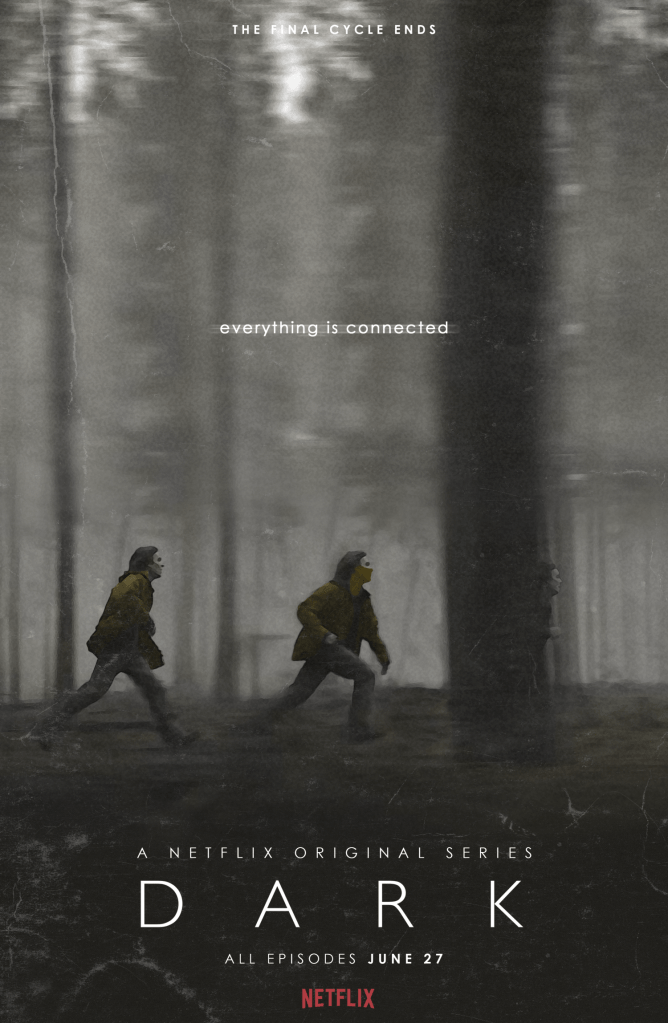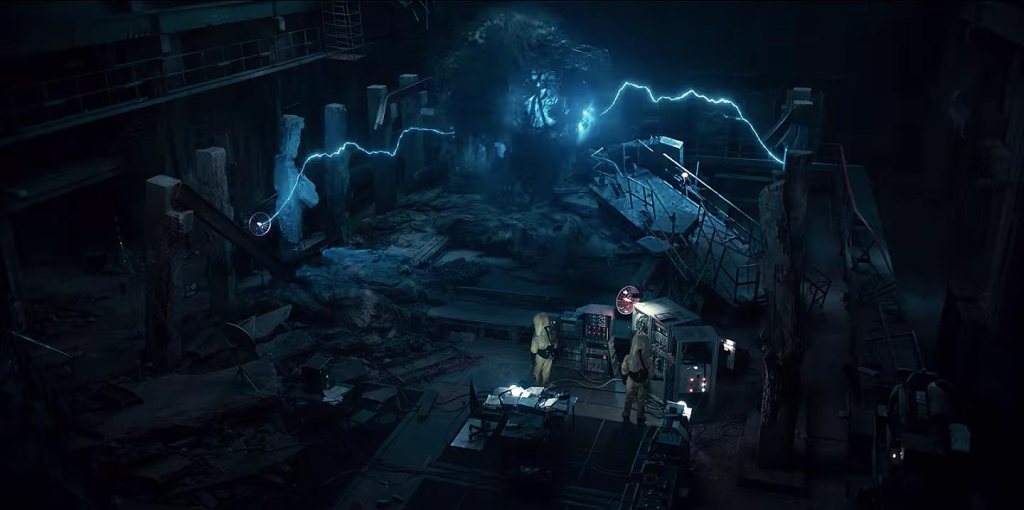NETFLIX REVIEW: DARK (2020) – SEASON 3
Created by: Baran bo Odar, Jantje Friese
Written by: Jantje Friese, Ronny Schalk, Marc O. Seng, Martin Behnke, Daphne Ferraro
Directed by: Baran bo Odar
Cast: Louis Hofmann, Karoline Eichhorn, Lisa Vicari, Maja Schöne, Stephan Kampwirth, Jördis Triebel, Andreas Pietschmann, Paul Lux, Moritz Jahn, Christian Hutcherson, Oliver Masucci, Peter Benedict, Gina Stiebitz, Deborah Kaufmann, Daan Lennard Liebrenz, Julika Jenkins, Carlotta von Falkenhayn, Tamar Pelzig, Dietrich Hollinderbäumer, Mark Waschke, Leopold Hornung, Christian Pätzold, Will Beinbrink, Hermann Beyer, Christian Steyer, Lisa Kreuzer, Anne Ratte-Polle, Walter Kreye, Lydia Maria Makrides, Tom Philipp, Nele Trebs, Tatja Seibt, Lea van Acken, Shani Atias, Max Schimmelpfennig, Ella Lee, Peter Schneider and many more.
Composer(s): Apparat, Ben Frost
Executive producer(s): Justyna Müsch, Jantje Friese, Quirin Berg, Max Wiedemann, Baran bo Odar,
Cinematography: Nikolaus Summerer
Original Network: Netflix
***MAY CONTAIN SPOILERS***

“Time is an illusion.” ― Albert Einstein
And so the end is nigh, and we reach the final season of uber-drama, DARK. If you have Netflix and you like to have your mind scrambled and heart moved, then I urge you to watch it. It is easily one of the best television dramas I have seen in a long time. It’s edgy, nightmarish, confusing, twisted and to be honest, virtually unreviewable. I say that because I don’t want to give away any spoilers but, trust me, if you like emotionally, structurally and artistically complex plots involving multiple characters, locations and timelines then this German thriller is for you. It had me confused in a good way and totally immersed in the plot and characters. You will be lost, searching for the light, yet you will be astounded too by the audacity of the writing, direction and looping insanity of the show.
Time, space and dimensional rifts are central to the drama. The cycles of life and death are also integral within the fabric of DARK. The action occurs in the German town of Winden as the narrative entwines the past, present and futures of four families: Kahnwald, Nielsen, Doppler, and Tiedemann. One could argue that the state of Saṃsāra is invoked as a key theme. Saṃsāra is a fundamental concept in all Indian religions. It is linked to the karma theory, and refers to the belief that all living beings cyclically go through births and rebirths. The term is related to phrases such as the cycle of successive existence, including the karmic cycle or the wheel of life. What occurs within the twenty-six episodes of DARK is a cyclical lunar convergence of 33 years, taking place initially in 1987 and 2020. Well, that’s just in season one. From season two onwards things temporally twist beyond into other years on the cycle.
During season two and much of season three I was often lost with the various characters criss-crossing each other on different timelines and at various ages of their lives. I finally found some semblance of understanding in DARK, after much frustration and almost giving up, by distilling the events to the human strands of childhood, adulthood and old age. Like a moving vision of Titian’s painting, The Three Ages of Man, all the major characters, notably Jonas Kahnwald, Claudia Tiedemann and Ulrich Nielsen, feature in these three stages of existence. Interestingly, the programme events show they have different agendas and perspectives, with older versions either teaching their younger selves or acting as their own nemesis. Proving that existentially speaking life is ultimately a constant battle with oneself.

Temporal paradox is central also to DARK. More specifically, it features the Bootstrap Paradox. This refers is a theoretical paradox of time travel that occurs when an object or piece of information sent back in time becomes trapped within an infinite cause-effect loop in which the item no longer has a discernible point of origin. Indeed, closed causal loops, such as the Predestination Paradox or Bootstrap Paradox, find time running in a repeating circle. When such circles over-lap in DARK, conflict is derived in the story because certain characters are trying to keep the loops going and others are trying to destroy them.
Which brings us to another major theme of the drama, the death of the self and death of the world. With the spectre of Chernobyl hanging over the town of Winden, the nuclear power station becomes a central harbinger of catastrophe throughout the various cycles. In the early years it is a beacon of prosperity, energy and employment. In later years it is the precipitous location for the apocalypse. Lastly, philosophically the textual richness in DARK is endless. While temporally speaking the looping timelines can be confusing, the final season, while leaving many questions unanswered provides a satisfying closure to this extremely human story. Amidst the science fact and fiction and philosophical explorations of life and death this is ultimately a television series about family and community. Because as soon as the cracks begin to show in the family unit we are destined to fall through the fissures of destiny. Only together can we conquer fate; but only if time allows.

